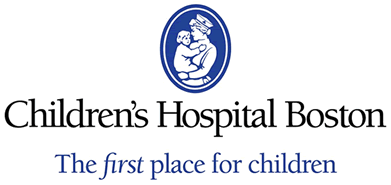Safety of and Immune Response to Recombinant Live Attenuated Parainfluenza Type 3 Virus Vaccine in Healthy Infants and Children
| Status: | Archived |
|---|---|
| Conditions: | Infectious Disease |
| Therapuetic Areas: | Immunology / Infectious Diseases |
| Healthy: | No |
| Age Range: | Any |
| Updated: | 7/1/2011 |
| Start Date: | November 2009 |
Phase I Study to Determine the Safety, Infectivity, and Tolerability of 2 Doses of Live Attenuated Recombinant Cold-Passaged (cp) 45 Human Parainfluenza Type 3 Virus Vaccine, rHPIV3cp45, Lot PIV3#102A, Delivered as Nose Drops to HPIV3-Seronegative Infants and Children 6 to 36 Months of Age, at a 6 Month Interval
Human parainfluenza viruses (HPIVs) are a major health concern in infants and young children
under 5 years of age, causing serious respiratory tract disease. The primary purpose of this
study is to test the safety of and immune response to a new HPIV vaccine in healthy infants
and children.
HPIV type 3 (HPIV3) ranks second only to respiratory syncytial virus as the most important
cause of bronchiolitis and pneumonia in infants less than 6 months of age. HPIV3 can cause
severe disease in the first 2 years of life and is responsible for 11% of hospitalizations
for respiratory diseases in children. This study will evaluate the safety and immunogenicity
of a live recombinant attenuated intranasal HPIV3 vaccine, rHPIV3cp45.
This study will last for approximately 28 weeks. Infants and children 6 months to 36 months
of age will be randomly assigned to one of two groups. Group 1 participants will receive 2
immunizations of rHPIV3cp45. Group 2 participants will receive 2 doses of rHPIV3cp45
placebo. Immunizations will be given as nose drops and administered at study entry and
approximately 22 to 27 weeks after study entry.
On the day of immunization, a physical exam and blood collection will occur. Participants
will be observed for 15 minutes after immunization for any immediate adverse effects.
Parents or guardians will be given a thermometer to take with them and will be instructed on
how to take their child's temperature. They will be given the study schedule and will need
to provide contact phone numbers so study personnel can contact them by phone during the
days after immunization. Parents and guardians will be contacted by telephone daily from Day
1 to Day 18 after each immunization.
Parents or guardians will need to record their child's temperature daily for at least 17
days immediately following immunization. During this 17-day period, study visits will occur
on Days 3, 6, and 12 after each dose of vaccine or placebo. Participants will undergo a
nasal wash for a viral culture at all study visits. There will be additional follow-up
visits occurring sometime between 49 and 63 days after the first dose and 28 to 35 days
after the second dose; blood collection will occur at the follow-up visits. Additional
visits may be required on selected days during the month after immunization. Infants who
experience illness or side effects may be asked to return to the clinic for examination.
We found this trial at
2
sites
Children's Hospital - Boston Boston Children's Hospital is a 395-bed comprehensive center for pediatric health...
Click here to add this to my saved trials
Click here to add this to my saved trials
